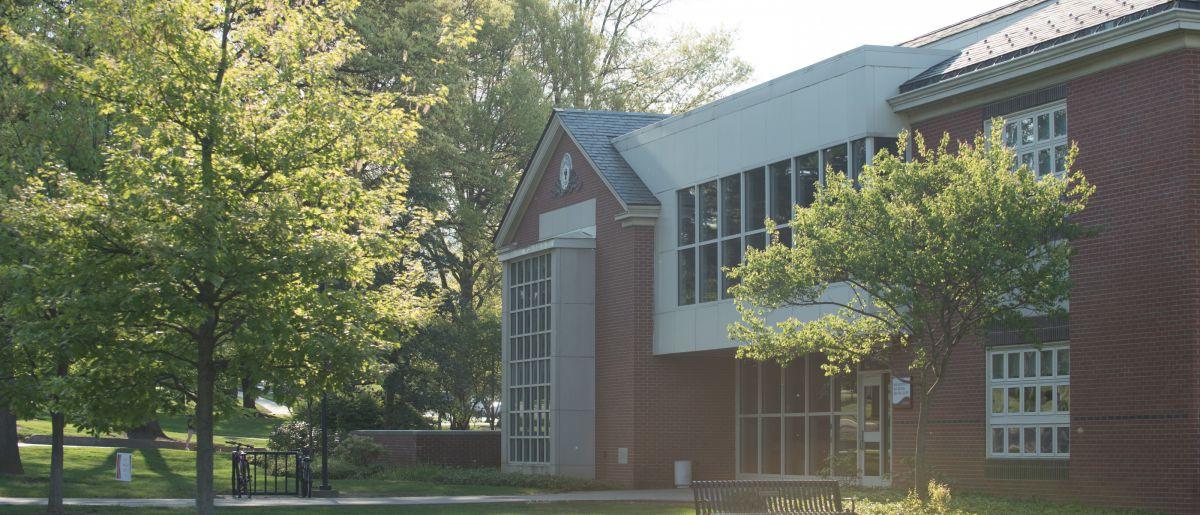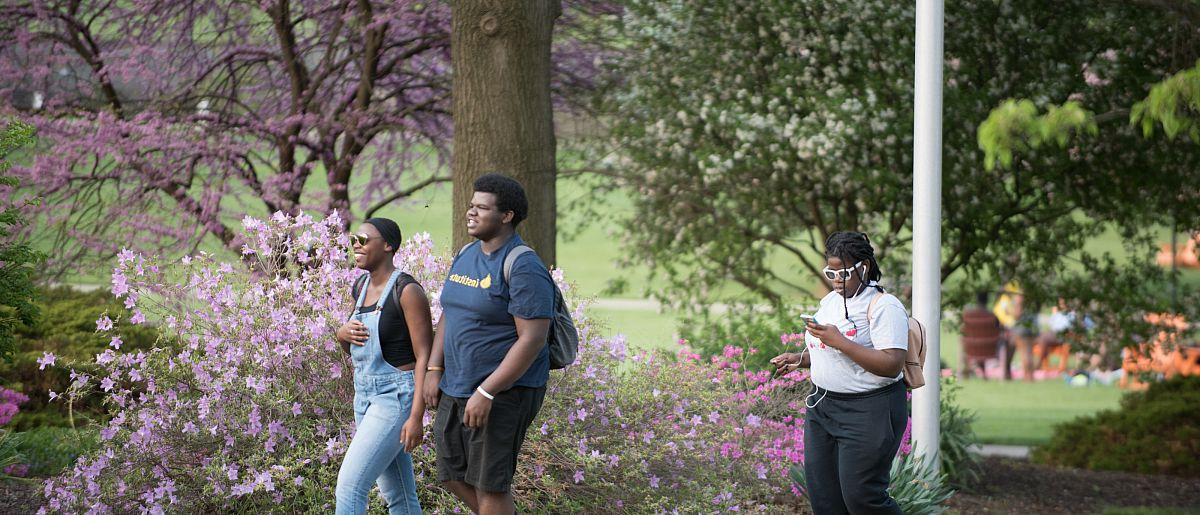Resources and Support
Susquehanna University’s Office of Disability Services provides support and guidance to students with disabilities and their families as they navigate their college experience.
Frequently Asked Questions
Ideally, you should contact the Office of Disability Services immediately after placing your deposit as an incoming student, or in the first two weeks of the semester if you are a returning student. This will allow the Office of Disability Services staff to contact you and offer assistance in various areas of orientation at Susquehanna. Please keep in mind that if requests for accommodations are not made within a timely manner, faculty and staff may not be able to fully provide an accommodation.
Requests for accommodations are submitted to the Office of Disability Services. This office is located in Fisher Hall, Room 204. You may contact the Disability Services staff via email at disabilityservices@isimao.com or by phone at 570-372-4412. Documentation may also be sent by fax to 570-372-2778. All services are confidential.
To obtain classroom, housing, or dining accommodations at Susquehanna University, you must submit a Request for Accommodations form to the Office of Disability Services (ODS) along with documentation from a qualified professional, preferably within the first two weeks of the semester. Once the documentation is reviewed, the director will meet with talk with you to determine appropriate accommodations.
For information on how to make an accommodation request, review the Request for Accommodations Process and Documentation Guidelines.
After receiving an email containing your “Letter of Accommodations” each semester, you will forward it to each of your professors. You will need to contact each instructor to arrange a convenient time to discuss your accommodations.
Students are discouraged from handing their professors the letters after class with the expectation that the accommodation will be arranged without discussion.
Tips on how to talk to your professors about accommodations.
Accommodations are determined on a case-by-case basis depending upon the supporting evidence and recommendations given in the documentation. In all cases, accommodations may not be given unless there is proof that the disability/condition “significantly limits a major life activity.” There must be a direct connection between the disability/condition and the accommodations being requested. If the documentation is incomplete or does not support your requests, further information may be needed. Accommodations will not be given if they alter the essential fundamental elements of a course. Some frequently used accommodations are: extended testing time, taking tests in a noise reduced environment, taking essay tests on a computer, tape recording lectures, and having a note-taking artificial intelligence app.
Not necessarily. Although information contained in an IEP or a 504 Service Agreement may be helpful, you may not qualify for the same accommodations you had in high school, even if your situation is “otherwise unchanged.” The laws governing accommodations between high school and college are different. Therefore, what qualified you for accommodations in high school may not qualify you in college.
Yes. The Office of Disability Services staff will do everything available to provide you appropriate access to accommodations; however, students who disagree with an accommodations decision may appeal the decision by following the appeals process.
There are many basic differences between the laws governing accommodations in high school and college. The major shift takes place in the area of independence. In college, you are expected to rely on your own self-advocacy skills to communicate with faculty and obtain accommodations. Faculty and staff expect to work with you, rather than your parents. In addition, the laws governing confidentiality make communication between faculty and parents more restrictive.
You first start by completing a Request for Accommodations form from the Office of Disability Services (ODS). As with other accommodations, documentation must be provided from a qualified professional stating the reasons and recommendations for the accommodations. Once the forms and documentation has been reviewed you will be contacted by the Office of Disability Services staff to discuss the request. If approved, you will then meet with Residence Life to determine the best housing options available.
No academic requirements at Susquehanna University will be waived. However, students may be permitted to substitute courses, for example, in a foreign language. These cases are rare, however, and must be fully supported by qualified professionals in appropriate documentation.
The Office of Disability Services (ODS) cannot provide testing to screen for a disability; however, there are alternatives that should be considered. ODS has no formal relationship with these outside agencies. Therefore, the scheduling of appointments, the fee structure, etc. are to be determined between the client and the agency.
Private Psychologist: This is often the quickest option. This type of testing resource may be covered under some insurance policies, so be sure to examine specific policies or contact your insurance agent and/or your medical doctor for a referral.
Vocational rehabilitation agencies are resources in each state that serve persons with disabilities. If you suspect you have a disability, check with a VR office for an assessment of your eligibility for services. Their evaluations of your eligibility for client services are free, but scheduling may be difficult.
Things to keep in mind when deciding on a testing option:
- Will your insurance (or your family’s insurance) help out with fees?
- Have you compared costs of testing in the area?
- Have you checked to see if you have any previous record of a disability on file?
- Do you need a medical referral for testing?
- Are adult measures being used in your evaluation?
- Did you bring Susquehanna’s documentation guidelines with you to the testing center


















